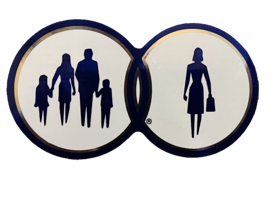Ten Reasons To Have A “Primary Care” Healthcare Provider
To have someone who knows about all of you - not just one portion of your body.
To have a “coach” who heads up the team of people caring for you and helps you be the best you can be.
To have a “translator” who can tell you, in plain English, what the heck the specialist was saying in their report or when they talked to you.
To have someone who acts as “traffic controller” and knows what the difference is in knowledge and services that are offered by different specialists.
Example: If you have a kidney problem, should you see a nephrologist or a urologist?
5. To be a “coordinator” of care when you would benefit from care from several physicians, services,
or agencies.
6. To save you some expensive emergency room charges when you could get appropriate care in a
different (less expensive) setting.
7. To minimize the “battery of tests” that some specialists order before even talking with you and might
have already been done!
8. To help you be proactive in dealing with conditions such as smoking, obesity, high blood pressure,
and cardiovascular disease that can have cumulative damage over time and can add to the burden a
polio survivor carries as they experience PPS.
9. Because, at least for now, preventive healthcare (in the US) is covered without co-pay/deductible
with most insurances, whereas “illness-based care” is usually subject to co-pays/deductibles.
10. Because your health insurance requires a referral from a PCP before you can get certain tests, see
some specialists, or access care.
Primary Care Healthcare Providers (PCP) can be a family physician often known as general practitioners (GPs), an internal medicine physician, a geriatrician/gerontologist, a nurse practitioner, or a physician assistant.
The physicians who serve as PCPs may have the initials, D.O. (Doctor of Osteopathy) or M.D. (Doctorate of Medicine) after their names. Both types of medical education prepare them to serve as PCPs.
In my experience, physicians who have a D.O. degree have a better basic understanding of how the neuromuscular system functions in health and in illness. On this topic, I found this article interesting - “Allopathic and Osteopathic Physicians May Provide Equivalent Quality of Care” (“Allopathic” is another term for an M.D.).
There are different models of practice today - there still is the traditional office-based practice, there are “concierge” practices, and yes, there are even a few providers who provide most of their care in the patient’s home and make house calls routinely.
Don’t expect your PCP to be exactly like TV’s Marcus Welby (the character who played a family practitioner with a kind bedside manner, who made routine house calls and was on a first-name basis with many of his patients). Depending on where you live, most PCPs no longer go to the hospital daily to see their patients or serve as first assistant when their patient has surgery. It makes me very sad, but most insurances (in the US) will no longer pay for your PCP to be your attending physician when you are in the hospital. The PCP can come “visit” you like any other visitor but has limited authority to manage your care while you are hospitalized, in a rehab facility, or in a nursing home. This also means there is less opportunity for PCPs to truly KNOW various specialists and be able to match the patient’s and the specialist’s personalities.
The most important factor in choosing a PCP is finding someone with whom you feel most comfortable. This does NOT mean they say “yes” to everything you want. Like a good parent, it can also mean telling you things you don’t want to hear but that are “good for you” and in your best interest (but and hopefully, said with firm gentleness and caring!). Obviously, it also helps significantly if they “participate” with whatever insurance you have!
Other factors I think are important to consider in choosing a PCP are:
How easy it is to get into their office? Is it convenient for you to get there?
Do you need handicapped accessibility? Is the office accessible?
Is the practice able to accommodate your unique physical and emotional needs?
How easy it is to deal with the office’s front desk and nursing staff ?
o Are calls returned in a timely manner?
o Is the staff caring and compassionate?
o Does the staff put the patient first or does it seem that their first priority is to protect the physician’s time?
Choosing a primary care physician shouldn’t be made without careful consideration to what YOU need. It isn’t necessarily an easy decision, but can be a very important one. You do have the right to ”interview” primary care providers before hiring them, similar to hiring a landscaper, plumber, etc. In the U.S. if you have an HMO or PPO the insurance may limit how one navigates the process of “shopping” for a new primary care physician.

